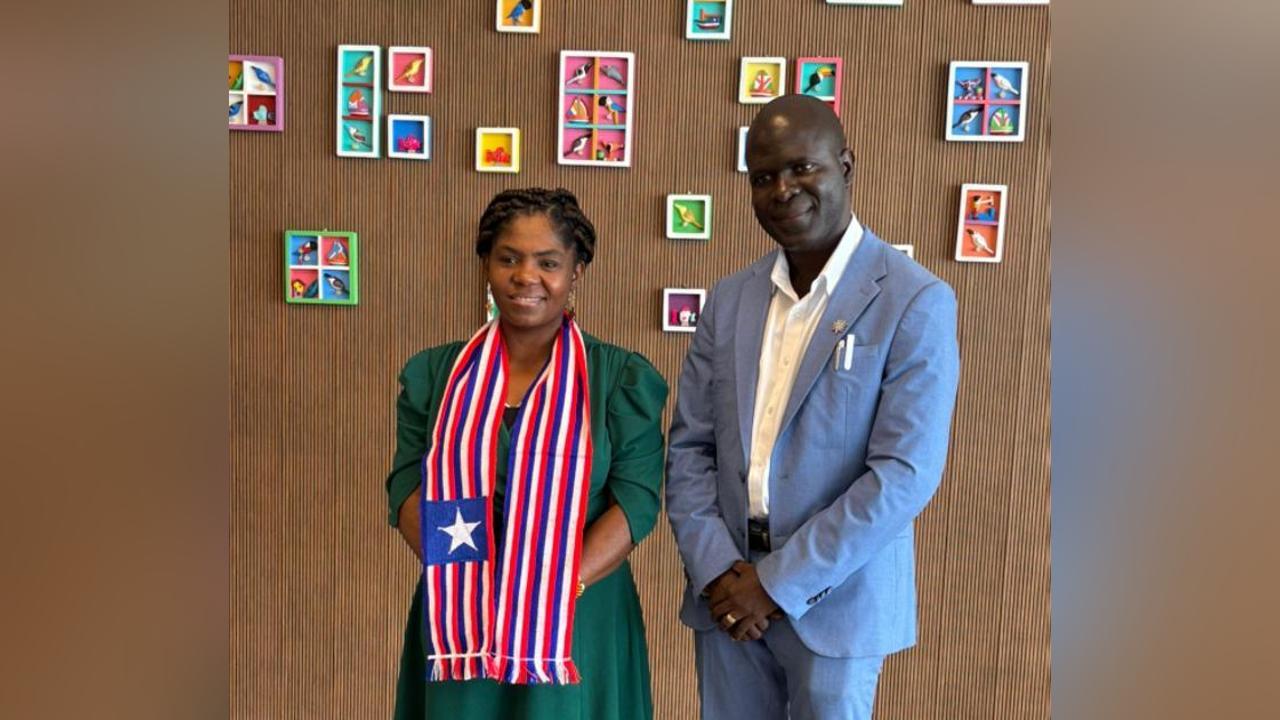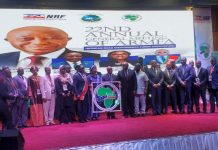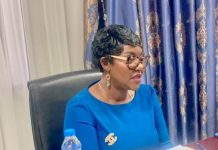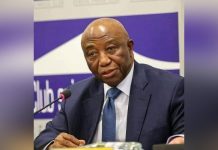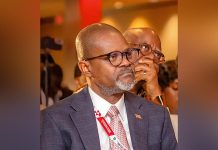Africa-Press – Liberia. A major diplomatic exchange unfolded on November 16, 2025 at the Vila COP30 Hotel in Belém, in the Federative Republic of Brazil, where Colombia’s Vice President Francia Elena Márquez Mina held a bilateral meeting with Dr Emmanuel K Urey Yarkpawolo, the Executive Director of the Environmental Protection Agency of Liberia.
The meeting took place during COP30 and focused on Colombia’s request for Liberia’s endorsement of the Belém Declaration on the Role of Peoples of African Descent in Combating Climate Change.
The dialogue highlighted the rising global movement to secure recognition, visibility and leadership for peoples of African descent within international climate governance.
Vice President Márquez began the meeting by offering a comprehensive historical narrative on the global experience of peoples of African descent. She discussed their ancestral relationship with the natural world, the deep traditional ecological knowledge they have preserved for generations and their longstanding role as protectors of land, water and biodiversity.
She emphasized that today’s climate emergency is intertwined with the enduring legacy of historical injustices that began with the transatlantic slave trade, a system that violently displaced millions of Africans and subjected them to forced labor across the Americas.
She noted that the onset of the Industrial Revolution intensified environmental destruction, and the consequences of these combined forces now shape the climate and ecological crises confronting the world.
Despite their contributions to conservation and sustainable land stewardship, Vice President Márquez observed that Afro-descendant populations remain largely absent from global climate decision-making spaces.
The Vice President explained that Colombia alone is home to more than ten million Afro-descendants, forming the third-largest Afro-descendant population in the world after Brazil and the United States.
She stressed that the scale of this population reflects a deep cultural and historical presence that has not translated into adequate representation in environmental negotiations. Her ongoing diplomatic outreach to Ghana, Nigeria, South Africa and other African nations aims to build a unified global voice among Afro-descendant communities.
She expressed hope to extend this engagement to Liberia through an official visit in the near future and formally requested the Government of Liberia’s support for the Belém Declaration.
Responding on behalf of the Government of Liberia, Dr Emmanuel Urey Yarkpawolo conveyed warm greetings to the Vice President, the President and the people of Colombia.
He expressed appreciation for the invitation and highlighted Liberia’s unique historical identity as a nation founded by formerly enslaved Africans returning from the United States who joined with Indigenous communities to establish a new national foundation.
He underscored that this history positions Liberia as both a symbol and a participant in the narrative of African resilience, return and identity, and provides Liberia with a special place in conversations about the rights and experiences of peoples of African descent.
Dr Yarkpawolo elaborated on the complexities surrounding global classification of peoples of African descent. He explained that they do not fully fit into existing definitions of Indigenous Peoples and that grouping them under the broad category of local communities often obscures their unique historical journey and environmental contributions.
He affirmed that a distinct recognition category is warranted because it appropriately reflects the specific vulnerabilities, cultural identity and leadership potential of Afro-descendant populations.
He also noted that past attempts to strengthen unity between Africa and the diaspora achieved uneven outcomes and stressed that genuine collaboration requires a clear understanding of shared heritage as well as respect for differences and diverse strengths.
He highlighted the ongoing work of the African Group of Negotiators in advocating for Africa’s special needs and circumstances within the UNFCCC framework and observed that Vice President Márquez’s global advocacy aligns closely with these priorities. He informed the Vice President that once he received her invitation, he promptly communicated with Liberia’s Ministry of Foreign Affairs, which is awaiting further clarification.
Dr Yarkpawolo reaffirmed his personal and institutional support for the Belém Declaration and pledged to brief Liberia’s Foreign Ministry as part of the formal follow-up.
As a gesture of cooperation and goodwill, the EPA Executive Director presented the Vice President with a copy of Liberia’s Natural Capital Atlas and a traditional Liberian sash crafted in the national colors.
He extended an invitation for her to visit Liberia and spoke about the potential for cultural, trade and investment ties between Liberia and Colombia. Vice President Márquez welcomed the invitation and expressed confidence that Liberia could benefit from deeper engagement with Colombia’s large Afro-descendant population through cultural exchange, trade partnerships and joint climate initiatives.
She informed Dr Yarkpawolo of her planned visit to Togo in December, during which a stop in Liberia might be possible, and encouraged Liberia to participate actively in a major global gathering of peoples of African descent scheduled for March 2026 in Bogotá.
Dr Yarkpawolo recognized the value of the proposals presented and noted that structured progress would require official communication between the two governments through diplomatic channels to ensure coordinated cooperation.
The meeting ended with friendly exchanges and the taking of a group photograph, marking what both delegations described as a constructive and forward-looking engagement oriented toward strengthening Afro-descendant leadership within the global climate agenda.
Vice President Francia Elena Márquez Mina brings a remarkable personal and political history to these discussions. Born on December 1, 1981 in the village of Yolombó in the Suárez municipality of Colombia’s Cauca Department, she began her activism at age thirteen when a dam project threatened her community’s survival.
Over the years she emerged as a nationally and internationally recognized environmental and human rights advocate. In 2018 she received the Goldman Environmental Prize for her leadership in mobilizing women from La Toma on a five hundred and sixty-kilometer march to Bogotá in protest of illegal mining.
In 2019 the BBC named her among its 100 Women of the Year. In 2022 she became Colombia’s first Afro-Colombian Vice President and the second woman ever to hold the office after joining Gustavo Petro as his running mate in the Historic Pact for Colombia coalition. In 2023 she was appointed Minister for Equality and Equity.
Her life and work exemplify a profound commitment to social justice, environmental protection and the advancement of Afro-descendant communities, values she brought to her meeting with the Liberian delegation in Belém.
For More News And Analysis About Liberia Follow Africa-Press

